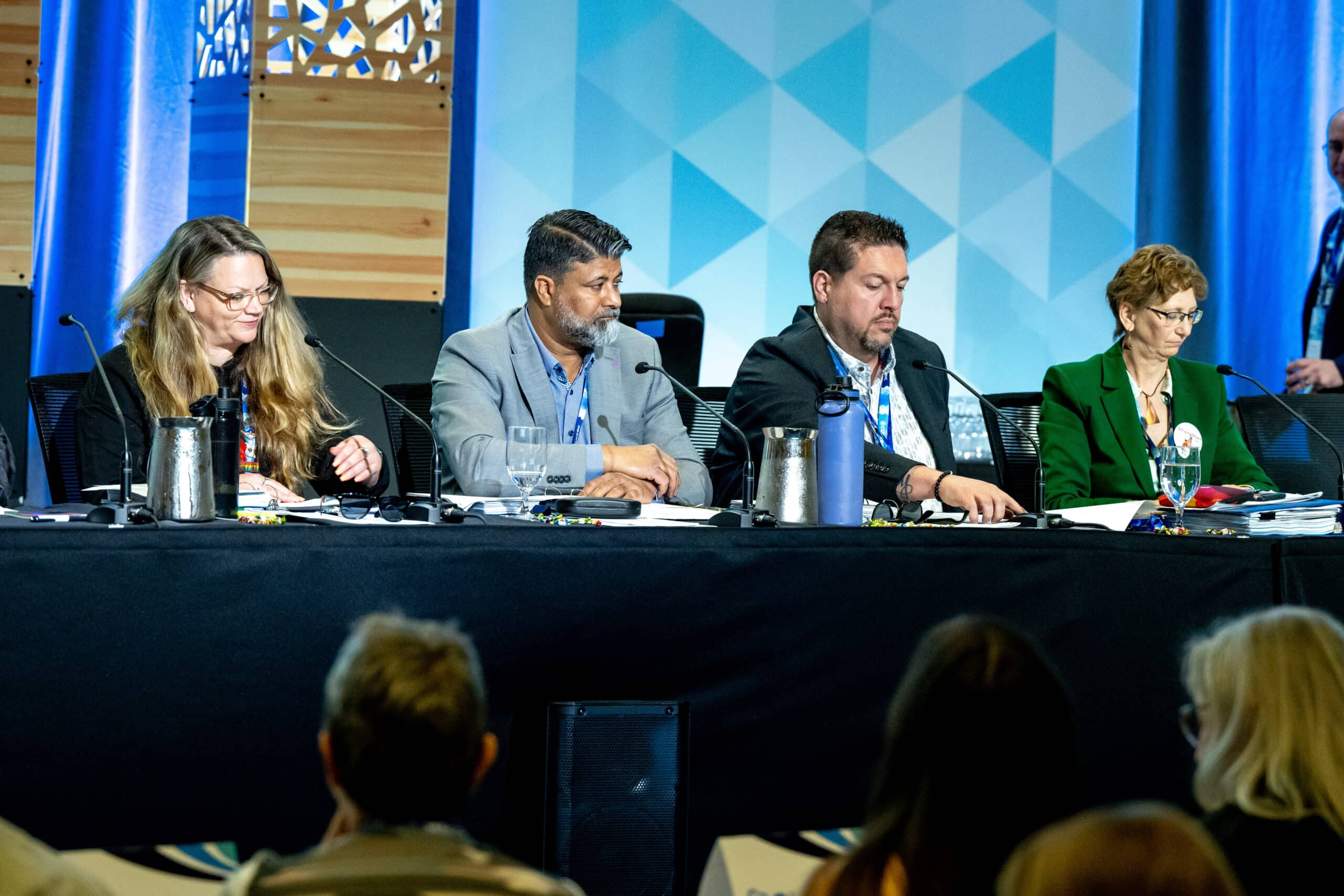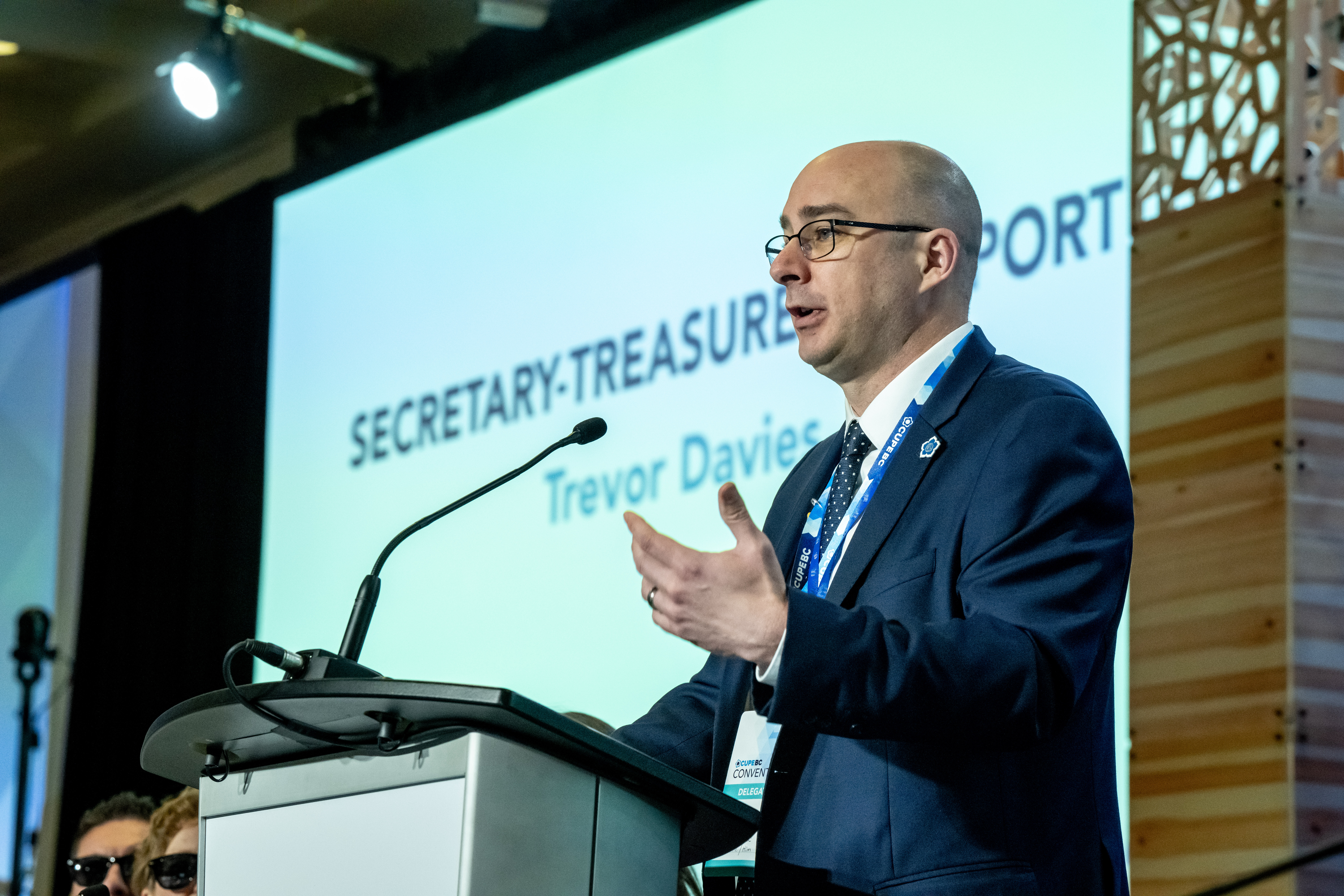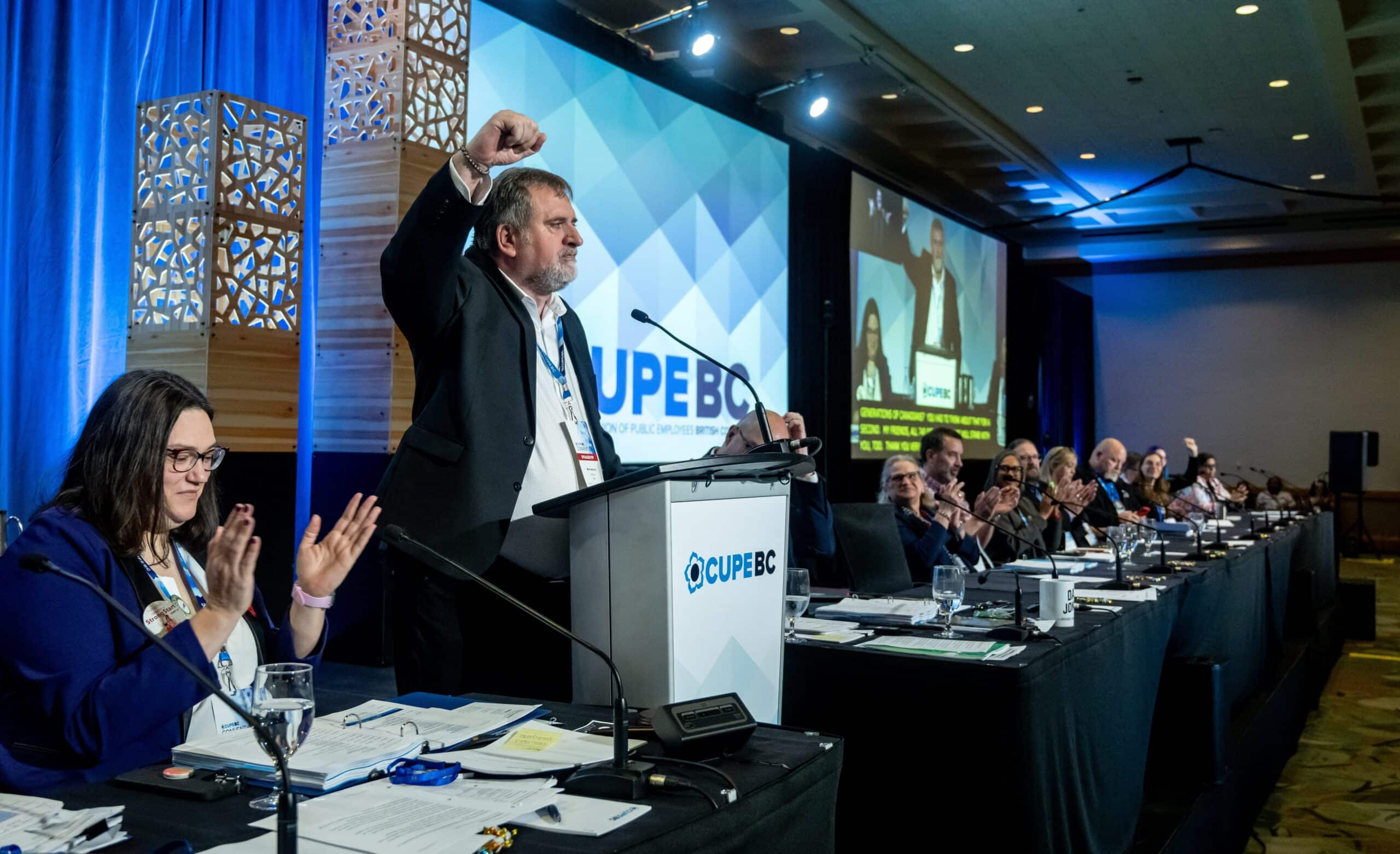RICHMOND—CUPE’s B.C. regional bargaining strategies conference continued on Thursday with delegates separating into provincial and locally-funded sectors—and then into individual sectors—to discuss bargaining priorities for 2012.
Presentations throughout the day focused on helping delegates understand the current bargaining climate in B.C., including provincial and federal political factors.
In a presentation on the Public Sector Employers’ Council (PSEC) mandate, CUPE Research representative John Malcolmson provided a detailed account of how the provincial government’s approach to bargaining has shifted in recent years, leading to the announcement late last year of its so-called “cooperative gains” mandate.
Similar to the “net zero” mandate that resulted in a two-year wage freeze for many public sector employees over the 2010-12 period, the new mandate allows for moderate wage or benefit improvements—but only if savings are found within the system to “pay” for such increase, said Malcolmson.
While no “official” government mandate currently exists for locally funded sectors, the idea of “co-operative gains” could still trickle down to locally funded sectors, delegates were told.
“No one is immune to government mandates,” commented CUPE’s municipal coordinator Joe Badali, “but coordinated bargaining is one way we can take on these mandates. Our members realize they will have to give up some autonomy and all work together to achieve fair deals this round. ”
In another presentation, on public opinion polling and the bargaining climate, CUPE Research representative Keith Reynolds shared the results of a BC Federation of Labour commissioned and CUPE supported poll on attitudes toward public sector workers.
“Polling is a tool, and it’s an important tool that can help us bring the public along with us,” said Reynolds. “Polling should never be used to tell you what to do, but to tell you how to get to where you want to be.”
One finding of the recent poll confirms that British Columbians respond more positively to language that emphasizes the front-line workers who deliver services for our community than phrases like “public sector workers” or language that focuses on the union. This is just one example of how CUPE needs to change the public and media conversation about bargaining.
The key to changing the conversation, he said, is changing the “frames” that the public associates with public sector bargaining.
The BC government will tell us they are being responsible and that BC can’t afford a wage increase, Reynolds said. But we should be telling people the government is really making choices to cut taxes for corporations and to cut services for people and wages for the people who deliver them.
“CUPE members in all sectors have told us that they want a ‘workers mandate’ that will focus on the needs of workers and their families for respectable collective agreements,” said conference coordinator Bill Pegler. “This would include wage increases that recognize the growing income gap in this province, recently confirmed by BC Statistics.”
To achieve such a worker’s mandate, Pegler added, it’s clear that CUPE will have to work within the public sector labour movement because no one union can take on such a project alone.
Delegates agreed that solidarity within the sectors, as well as with other sectors and also with other unions, would be a key factor in this round of bargaining.





